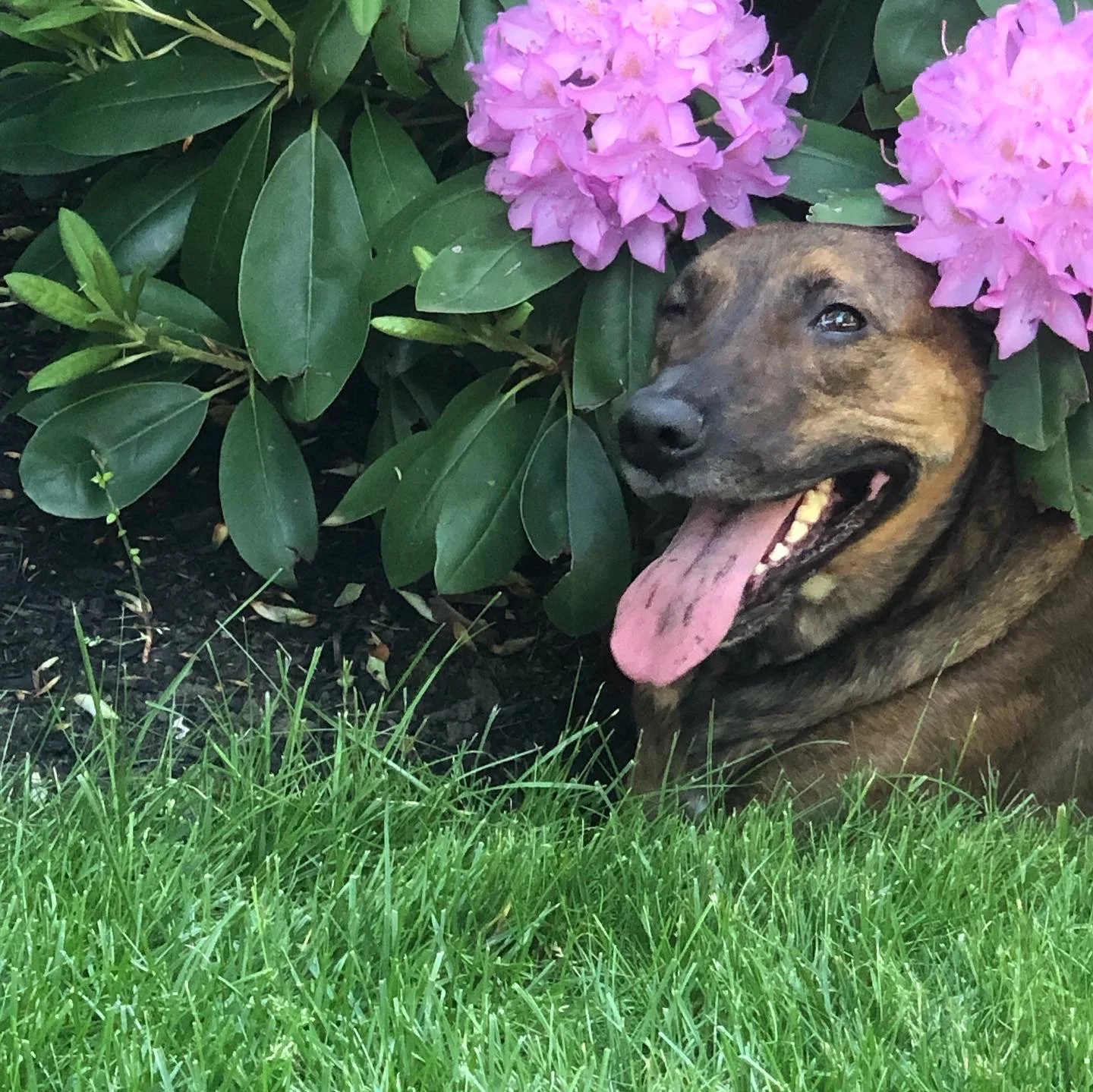#PositivelyStressed – Week 30
“Animals in Hospitals!? With their germs?!” Anonymous Karen (probably).
We’ve all seen the heartwarming stories of dogs as service and emotional support animals. Some perform highly specific functions—like alerting their person to sit down or fetching medication—while others provide more general support simply by being present. Research shows that dogs can reduce cortisol (the stress hormone), increase oxytocin (the bonding hormone), and even improve cardiovascular health (Pendry et al., 2019; Beetz et al., 2012; Levine et al., 2013).
And while it might feel like dogs are “just pets,” evidence increasingly points to their therapeutic power. The NIH has highlighted benefits of animal-assisted interventions, including reduced PTSD symptoms in veterans and improved mood in dementia patients (NIH, 2018). Dogs don’t just offer companionship; they change our physiology in measurable, positive ways.
Why is that?
1️⃣ Dogs give meaning beyond ourselves. This is done through routines and empathy. Caring for another living being provides a sense of responsibility and connection.
2️⃣ Dogs provide built-in breaks. Instead of spending an entire Saturday binge-watching shows, dogs demand interaction. Even without a long walk, those routines can increase daily steps from 500 to over 2,000. With cardio health goals at 8-12k, dogs help move us closer to what our bodies need.
3️⃣ Dogs have generations of companionship experience. Over centuries, dogs have been bred for specific roles – from herding sheep to guarding homes. But many breeds have also been shaped into companions with expressive faces, playful temperaments, and an almost-human knack for bonding.
Of course, there are challenges – training, the responsibility of care, and ultimately the sadness of saying goodbye. But the wellness benefits of that wagging tail far outweigh life without it – and that’s a scientific fact!
Remember when we talk about stress in the #PositivelyStressed series, it’s not about erasing it – it’s about reframing it. A wagging tail can remind us that life doesn’t have to be perfectly ordered to be meaningful. That joy can coexist with responsibility. And that sometimes the best antidote to a racing mind is a companion who only cares that you’re sitting on the couch together.
And that is how we live #PawsitivelyStressed. 🐾
Pictures are of my fur-baby: Maggie.



